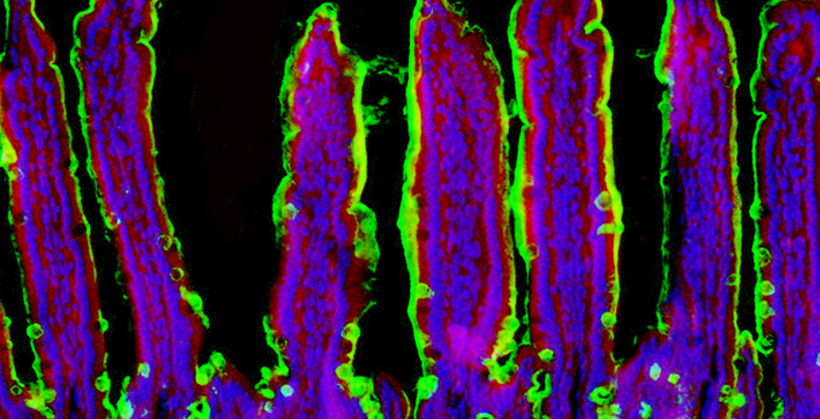
Colitis
The incidence and prevalence of colitis and the inflammatory bowel diseases (IBDs) are increasing while the origins of these life-threatening syndromes
predominantly include unknown environmental factors deduced from studies of genetic twins and other human populations. Possible causal links involving
exposure to microbial pathogens are under increased study as bacterial infections have been associated with seasonal increases in hospital admissions
diagnosing intestinal inflammation and the IBDs. Foodborne infections represent a common and escalating human health problem that may represent the early
origins of colitis and the IBDs. To investigate further, CNM scientists have developed and characterized the first animal model of recurrent human food
poisoning using low-dose nonlethal gastrointestinal infections of a virulent Salmonella bacterial isolate. We discovered that repeated exposure over the
lifetime induced inflammation of intestinal tissues, especially the colon. Although the host effectively cleared the low dose of the pathogen weeks before
reinfection, inflammation and intestinal tissue damage progressively increased in severity with additional infections. These findings indicate that food
poisoning represents an environmental and pathogenic origin of a progressive colitis that appears similar to that present in various cases of human IBD.
Ongoing research in this area is identifying all of the molecular features of this novel disease mechanism. CNM discoveries have shown that the development
of colitis due to recurrent food poisoning can be prevented by oral augmentation of anti-inflammatory enzymes or similarly by neuraminidase inhibition.
Both are represented by currently developed drugs used for other purposes and which may upon repurposing represent effective approaches to prevent and treat
human colitis and the IBDs.